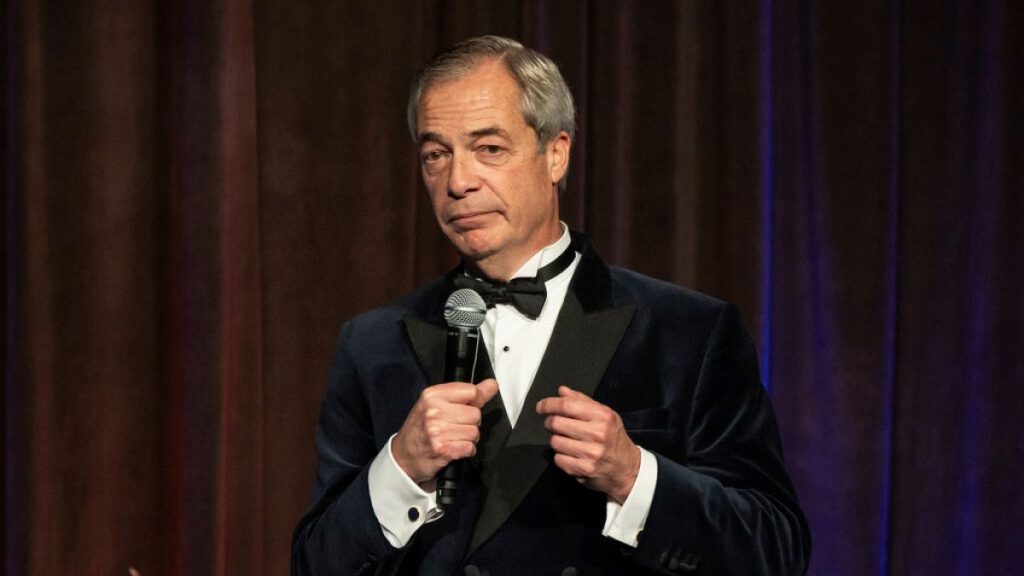The unfolding narrative of a potential alliance between tech magnate Elon Musk and Nigel Farage’s Reform UK party has taken a significant turn, transitioning from veiled suggestions to open acknowledgment of financial negotiations. Following a meeting at Donald Trump’s Mar-a-Lago resort, involving Musk, Farage, and Reform UK’s treasurer Nick Candy, Farage confirmed the discussions about a substantial donation from Musk to the party. This revelation marks a pivotal moment in Reform UK’s trajectory, potentially injecting significant financial resources into their campaign against the ruling Labour Party. While the exact amount and the finalization of the donation remain under negotiation, Musk’s vocal support for Farage and his expressed confidence in Reform UK’s prospects suggest a strong inclination towards providing financial backing. This potential influx of funding could significantly reshape the political landscape in the UK, potentially bolstering Reform UK’s efforts to challenge the established political order.
The meeting at Mar-a-Lago underscores the convergence of influential figures with shared ideological leanings, potentially foreshadowing a powerful collaboration. The presence of Donald Trump, a close supporter of both Musk and Farage, adds another layer of intrigue to the developing narrative. This gathering of prominent figures signals a potential alignment of interests and resources, potentially creating a potent force in both the political and financial spheres. The backdrop of Mar-a-Lago, a symbol of wealth and power, further amplifies the significance of the meeting. The discussions held within its walls could have far-reaching consequences, particularly given the potential financial implications for Reform UK’s political ambitions.
The potential financial contribution from Musk comes at a crucial juncture for Reform UK, as they seek to expand their influence and challenge the established political parties. Currently holding a relatively small number of seats in Parliament, Reform UK faces a formidable uphill battle to achieve its goal of winning the next general election. A substantial financial injection could dramatically alter their campaign strategy, enabling broader outreach, amplified messaging, and increased visibility. Such resources could prove invaluable in their efforts to gain traction with voters and carve out a larger share of the political landscape. The potential infusion of Musk’s wealth could potentially transform Reform UK from a fringe party into a more formidable contender.
However, the potential donation is not without its legal complexities and potential controversies. UK electoral laws stipulate that donations exceeding a certain threshold must originate from donors registered within the UK. This requirement poses a challenge given Musk’s South African origin and US residency. Navigating these regulations will be crucial for ensuring the legality and transparency of any financial transaction. Potential avenues for compliance include utilizing the UK arm of X, Musk’s social media platform, as a conduit for the donation. Alternatively, exploring Musk’s potential eligibility for British citizenship through his grandmother’s heritage could provide another pathway for meeting these legal requirements. These legal intricacies will require careful consideration and adherence to ensure a legitimate and transparent process.
Beyond the legal aspects, the potential alliance between Musk and Farage raises broader questions about the influence of wealth in politics and the intersection of technology and political discourse. Musk’s vast financial resources and his prominent platform on X provide him with significant leverage to shape public opinion and potentially influence political outcomes. This potential injection of financial and technological power into the political arena raises concerns about the potential for undue influence and the erosion of democratic processes. The scrutiny surrounding this potential partnership highlights the ongoing debate about the role of billionaires and tech giants in shaping political landscapes.
Furthermore, the increasingly personal nature of Farage’s campaign against Prime Minister Keir Starmer adds another layer of complexity to the narrative. The public clashes between Musk and Starmer, including their exchanges on social media, highlight the contentious nature of the political landscape and the potential for personal animosity to influence political discourse. Musk’s public endorsement of Reform UK and his criticisms of Starmer suggest a deeper involvement in the political fray beyond mere financial contributions. This entanglement of personal rivalries and political ambitions further intensifies the scrutiny surrounding the potential Musk-Farage alliance. The potential ramifications of this collaboration extend beyond financial support, potentially influencing the tone and direction of the political debate in the UK.














